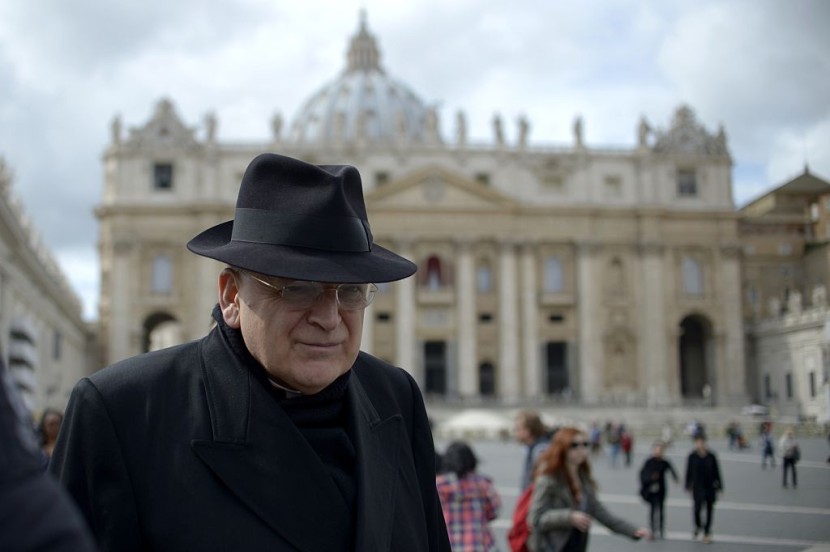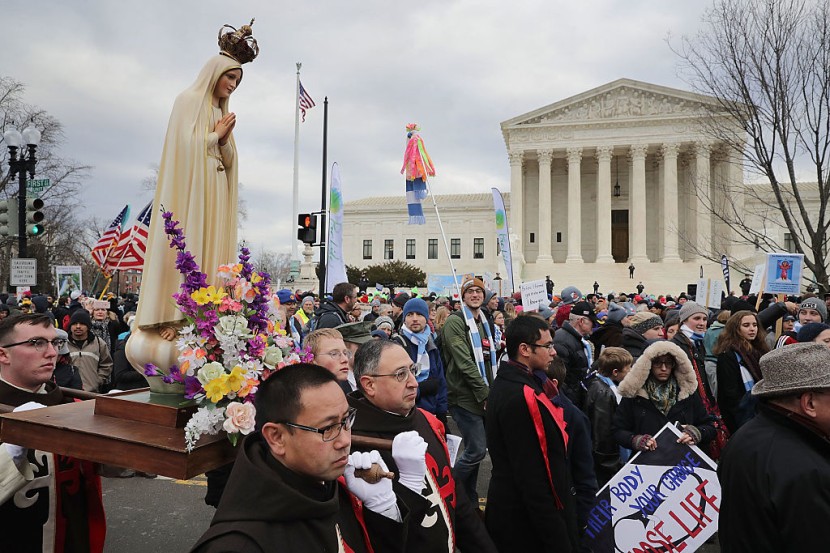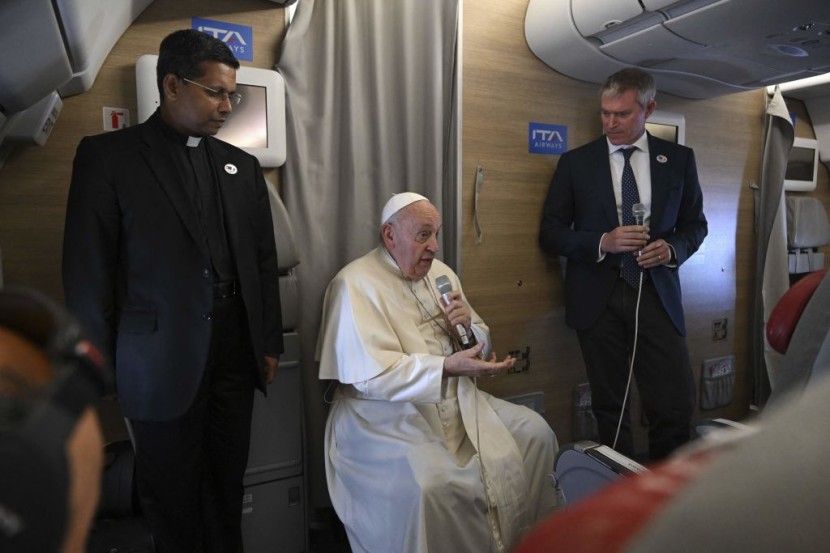
With the upcoming synod of bishops scheduled to begin in October, a new book was published warning readers of what the authors considered a threat to the very existence of the Catholic Church.
Authored by Latin American Catholic thinkers Jose Antonio Ureta and Julio Loredo de Izcue, the book, titled "The Synodal Process is a Pandora's Box" (which can be read for free online here), utilizes a comprehensive 100-item question-and-answer format to argue that the synodal process is rehabilitating old heresies once condemned by the church and imposing a harmful radical progressive agenda as a result.
Both authors are senior members of the Brazilian Plinio Correa de Oliveira Institute, a Catholic association seeking to defend the pillars of Christian civilization threatened by de-Christianization in the West, as per the National Catholic Register. They are also leading figures of Correa de Oliveira's organization Tradition, Family, and Property (TFP).
Authors See Synod as "Revolutionary," Self-Destructive
Loredo and Ureta viewed the upcoming synod, which is currently running a three-year process beginning October 2021 and culminating in two general assemblies in Rome in October 2023 and October 2024, as a "revolutionary" process that would re-promote heresies that were already condemned by the Holy See.
The Vatican promoted the process under the theme "For a synodal Church: communion, participation, and mission," and allegedly provided it as an opportunity for the church to practice introspection of its character and mission, as well as to promote an approach that the authors feared would destabilize the church's very institution which steadily progressed for almost 2,000 years.
The authors also assert the new "synodal" church would include those who profess to be Catholic but are doctrinally and morally heterodox, such as LGBT+ people, unmarried couples, and people living in "polygamous marriages" at the expense of heterosexual families (i.e. a family where children have a biologically male father and a biologically female mother), as well as those who are open to discuss "women's ordination to the priesthood, or at least the diaconate," which the Vatican categorically and vehemently prohibits prior to the synod's announcement.
The Vatican also sought to reconsider Catholic doctrine on homosexuality and marriage and "tamper with the Church's form of government by transforming it into an 'inverted pyramid' whose top is beneath the base," the authors further claimed.
In other words, the authors criticize those within the Vatican organizing the synod for promoting the heresy of conciliarism by wanting a more "democratic and participatory" church that, they said, would destroy the very essence of the Catholic faith.
"It's not a hidden agenda, because they've been making discreet references here and there about their goals, but it's a discreet agenda," Ureta told the Register. "Not even the bishops we have spoken with are aware of all that is at stake."
Ureta added that, through the book, he and Loredo precisely intended "to alert the hierarchy, the circles of the Catholic intelligentsia and the common faithful about the heterodox serpents and lizards inside the Pandora's Box that is being opened."

Past Lessons and Caveats
The 110-page book has been divided into six chapters and an introduction, in which the authors explained why they saw the synod as a revolutionary threat and a "watershed" in the church's history, specifically in the pontificate of Francis, himself a Latin American cleric prior to his election in 2013.
In the introduction of the book, the authors said the term synodality risked becoming a "talismanic word," quoting Correa de Oliveira.
The authors also quoted many significant Catholic intellectuals who are concerned with the whole concept, including the late Australian Cardinal George Pell, French Vaticanist Jean-Marie Guenois, as well as former Anglican bishops and Catholic converts Dr. Gavin Ashenden and Msgr. Michael Nazir-Ali explained why the Church of England failed miserably in their synods.
Ashenden - who remained a Catholic lay person unlike his former Anglican peers, such as Nazir-Ali, who were ordained into the Catholic priesthood as part of personal ordinariates for former Anglicans converting to Catholicism - was particularly quoted by the authors for denouncing the concept of "inclusion" in the synod, specifically its Working Document for the Continental Stage, as a "Trojan horse" seeking to "manipulate" people's hearts and minds by engaging in wordplay.
"The words trick is easily explained. The association with being excluded is being unloved," he said in a November 2022 Catholic Herald article. "Since God is love, he obviously doesn't want anyone to experience being unloved and therefore excluded; ergo God, who is Love, must be in favor of radical inclusion. Consequently, the language of hell and judgment in the New Testament must be some form of aberrational hyperbole which must not be taken seriously, because the idea of God as inclusive love takes precedence. And since these two concepts are mutually contradictory, one of them has to go. Inclusion stays, judgment and hell go. Which is another way of saying 'Jesus goes and Marx stays.'"
Prior to conversion, Ashenden was an Anglican bishop who later became a chaplain to the late Queen Elizabeth II, the mother of the current British monarch King Charles III.
In addition, the authors quoted the late Pope Benedict XVI, who as Cardinal Joseph Ratzinger and prefect of the Vatican's Congregation for the Doctrine of the Faith under John Paul II, denounced attempts to upend the church's hierarchical structure as a "delusion" that "would lack all legitimacy" and should be "decisively and clearly refused."
The German Problem
Meanwhile, the main body of the book aims to understand what a synod of bishops is, what synodality really meant, whether its conclusions were binding, what the organizers meant by listening, and the drawbacks and disadvantages of relying on what they called the "modern concept of listening."
The book also heavily criticized the proposal of the Catholic bishops of Germany of a radical interpretation of synodality, which they called "Der Synodaler Weg" - "The Synodal Way" in English. The authors condemned the proposal as it not only passed motions to approve same-sex church blessings, lay preachers, and a push towards ending priestly celibacy, but it also emphasized the fear of some Vaticanists that "the influence of German and Dutch progressives could be decisive in the synodal work," just like what the German and Dutch congregations did in the Second Vatican Council (Vatican II), when they figuratively allowed "the Rhine [to flow] into the Tiber," referring to the principal rivers of several Germanic-speaking cities and Rome, respectively.
The authors have also lashed out criticism against Francis's attitude and response to the German Synodal Way, saying that his criticisms were more about method than its substance, and that no one was punished for formulating heterodox propositions during the universal process. That thought was written despite the Vatican's veto on the German Synodal Way and concerns coming from several bishops and lay Catholics worldwide, which the leaders of the movement and its allies from several national-level bishops' conferences ignored.
Moreover, the authors have quoted a German bishop dissenting the German Synodal Way, Cardinal Gerhard Müller - who was Benedict's successor as the Vatican's chief theologian upon the latter's election in 2005 - when he said the majority of his fellow Germans were "dreaming of another church that has nothing to do with the Catholic faith" and was leading the church into its destruction.
In the concluding portion of the book, both authors recalled how they were continuing Correa de Oliveira's work and legacy, which denounced the widespread infiltration of neo-modernist and leftist errors in the church. They have also asked for the intercession of the Virgin Mary to not allow the church's "disfigurement," as well as hoped for the fulfillment of her message in Fatima in 1917 that her "immaculate heart [would] triumph" in the end.
Cardinal Burke's Approval
The book's foreword was written by US Cardinal Raymond Burke, who congratulated Loredo and Ureta and everyone involved in the publishing of the book. He said the work was "diligently and excellently" accomplished to formulate the appropriate questions and provide authoritative answers.
Burke also praised the book for "clearly and comprehensively" addressing what he called "a most serious situation" in the Catholic Church.
"We are told that the Church which we profess, in communion with our ancestors in the faith from the time of the Apostles, to be One, Holy, Catholic, and Apostolic is now to be defined by synodality, a term which has no history in the doctrine of the Church and for which there is no reasonable definition," he emphasized. "Synodality and its adjective, synodal, have become slogans behind which a revolution is at work to change radically the Church's self-understanding, in accord with a contemporary ideology which denies much of what the Church has always taught and practiced."
Burke further stressed that only the divine truth taught by Jesus himself, as well as the unchangeable doctrine of the church and its disciplines could effectively address the situation by "uncovering the ideology at work."
He concluded his remarks with the hope that the book would "become available to Catholics throughout the world for the building up of the Church."

True Catholic Doctrine Scandalizes Sometimes, Francis Says
During the interview on his flight back to Rome following his visit to Mongolia, Francis responded to Burke's recommendation of the book by claiming that the root of ideas like the upcoming synod would irrevocably change Catholic doctrine was "ideologies" that were supposed to be responsible for dividing the faithful.
He further recalled how some religious sisters also expressed to him their fears about the upcoming synod, particularly their fears that it would change the church's doctrine, and that a "'doctrine' in quotation marks" was a doctrine likened to "distilled water," that is, "without any taste and is not true Catholic doctrine."
"Many times true Catholic doctrine scandalizes - how scandalous is the idea that God became flesh, that God became man, that Our Lady [the Virgin Mary] preserved her virginity. This scandalizes," he added. "Catholic doctrine sometimes scandalizes. Ideologies are all 'distilled' and never scandalize."
However, in January this year, the Associated Press reportedly quoted the pope calling the German Synodal Way "elitist" and "ideological."
The US Stake at the Synod
In an opinion article for the Washington Post, Fordham University Center on Religion and Culture director David Gibson criticized critics of the upcoming synod, specifically conservative US Catholics and their media organs like EWTN, for its purported focus on what he called a "pelvic theology," as a result of the country's cultural and sexual wars between conservatives and progressives.
"American conservatives don't simply disagree with Francis or dissent from his teaching," he said. "They actually see themselves as more Catholic than the pope, and they're not shy about saying so."
In response, Stephen White, the executive director of The Catholic Project at the Catholic University of America (CUA), wrote in The Catholic Thing, saying Gibson was not aware of what he was talking about.
"The problem with Gibson's just-so-story is not so much the progressive worldview that underlies it, as the fact that it relies on a highly tendentious retelling of the American Catholic life in the post-Conciliar era," he said.
White added that few American Catholics are interested in a return to the church's status prior to Vatican II, especially among US bishops. However, US Catholics also do not wish to return to what he said was "the tepid, low-stakes Catholicism that decimated the American Church in the last half-century."
Ashenden: Book Slams Francis's Diversity, Inclusion, Equality Agenda
Meanwhile, in a separate article for the Catholic Herald, Ashenden reviewed Loredo and Ureta's book where he was quoted to say that the integration of the contemporary concept of diversity, inclusion, and equality (DIE) into the synod - and extension, in the church - was a "Trojan horse."
He commended the authors for the "simplicity and clarity" of how it was written and how they presented the issues in such a way that everything the world perceived about the Catholic Church was at risk.
"This kind of language might strike some as unreasonably alarmist at first sight," he said. "And so to make their case as accessibly as possible they have written in the form of questions and answers, in a familiar catechetical style to help Catholics work it out for themselves."
Ashenden also reflected on how the authors detected alleged Marxist and Orwellian undertones in the way the synod was formulated and organized and how the Vatican failed miserably in addressing global concerns without compromising its key principles, doctrines, and policies. On the other hand, he also noticed that, aside from a vocal few, most people who were concerned about where the church was going were not made aware of the contextual implications such ideologies would have on the future of the church.
"If it is true that both our bishops, thinking Catholics and the Church, in general, have yet to grasp the character and the alleged strategy of the present turbulence, then reading [Loredo and Ureta's book] may be as important a task as the authors believe it to be," he concluded.
© 2026 HNGN, All rights reserved. Do not reproduce without permission.








